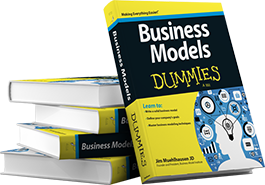GROUPON – Inevitable Failure – Inefficient Business Plan
I think the best way to evaluate GROUPON is the old fashioned SWOT analysis developed by Albert Humphrey. By way of reference SWOT stands for Strengths, Weaknesses, Opportunities, and Threats involved in a project or in a business plan.
Below we will look at GROUPON’s business plan in the form of the company’s Strengths, Weakness, Opportunities and Threats.
Strengths
- There are 30,150,000+ Groupon subscribers in North America alone
- It’s available in 160+ US cities
- And in 35 countries
- 31,150,000+ coupons have been bought in North America alone
- People have saved $1,325,000,000 with Groupon discounts
- About 10 million people are signed up for the mailing list
Source: GrouponWorks
Weakness
- The vast majority of the GROUPON’s assets are intangible.
- GROUPON has not proven that merchants will run deals through their site on a regular basis
- The reality is that financially, GROUPON hurts its customers – the merchants. GROUPON forces merchants to offer 50% of deals and then takes half the revenue the subscriber pays. As an example, a salon offers $100 worth of services for $50. The subscriber pays the $50, and GROUPON takes $25. Therefore, the company is essentially working for GROUPON.
- For a longer version, and a real life example from the great Posie’s Coffee Shop in Portland, Oregon – read the essay they put on Facebook here. This essay blew my mind. The GROUPON sales rep told the owner that if the customer spends less than $10, GROUPON takes 100% OF THE MONEY!!!!
- Due to three items mentioned above – this business model is not sustainable.
- The company turned down $8 billion from Google when it’s primary asset is a email list. This is not smart from a financial capital perspective.
Opportunities
- The company does have room to grow both domestically and internationally.
Threats
- Today in my city, the deal is half-off some teeth whitening product. The problem: this product is on Amazon for cheaper than the GROUPON deal. This is not sustainable.
- GROUPON has no focus. Therefore, similiar services that focus on niches such as outdoor gear like gearjunkie.com will easily perform better using traditional cash flow and profitability metrics.
- Livingsocial is GROUPON’s primary competitor and Living Social is backed by Amazon. Amazon not only has a lot more resources to enhance its marketing and growth, but also Amazon has the ability to cross-sell and vertically integrate operations. All of these factors, will put GROUPON at a significant competitive disadvantage.
Summary
In summary, while evaluating GROUPON’s business plan we find that there are no real assets, a business that has never been profitable, and that hurts its customers both financially and operationally. Therefore, we do not think GROUPON’s business plan is viable for the future.
The classic 19th century book “Extraordinary Popular Delusions & the Madness of Crowds” by Charles Mackay details the mentality of how bubbles are formed:
“We find that whole communities suddenly fix their minds upon one object, and go mad in its pursuit; that millions of people become simultaneously impressed with one delusion, and run after it, till their attention is caught by some new folly more captivating than the first. Men, it has been well said, think in herds; it will be seen that they go mad in herds, while they only recover their senses slowly, and one by one.”
This post was written by Jimmy Moncrief









